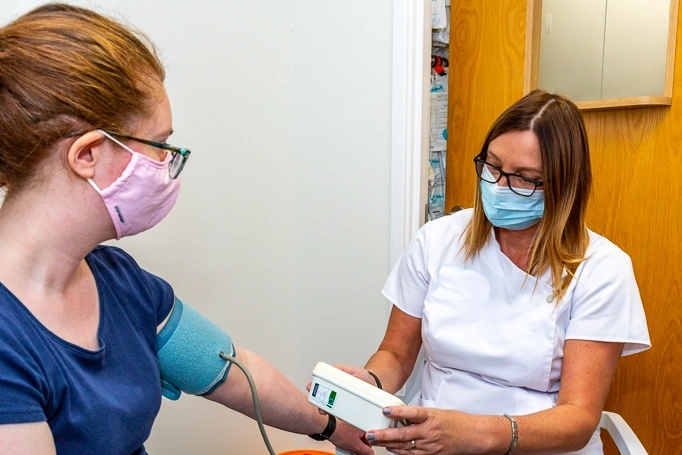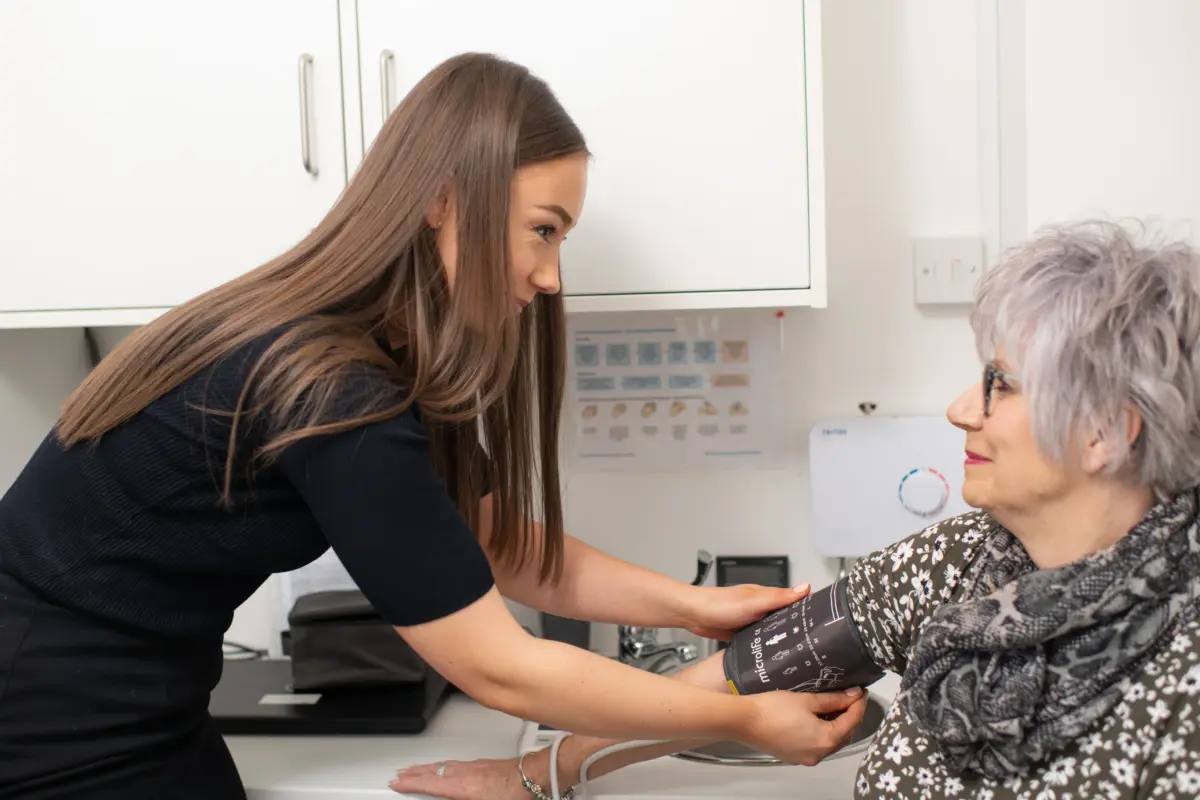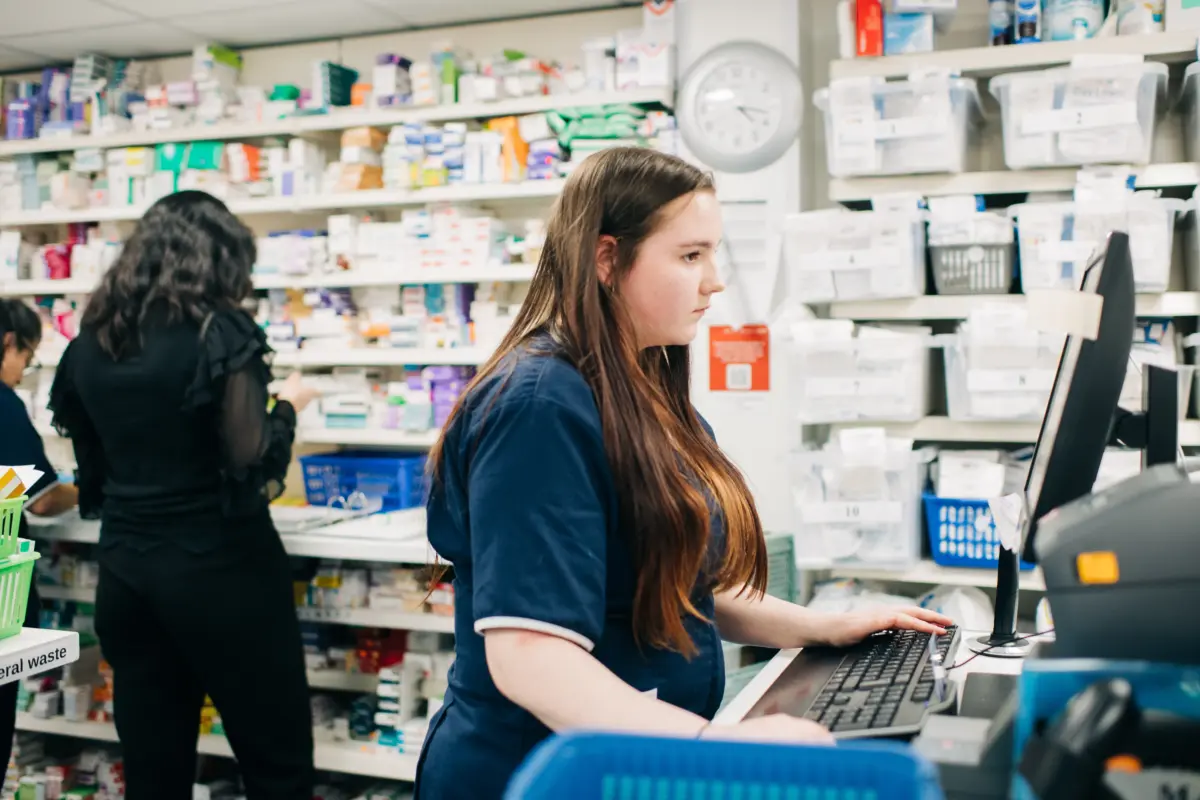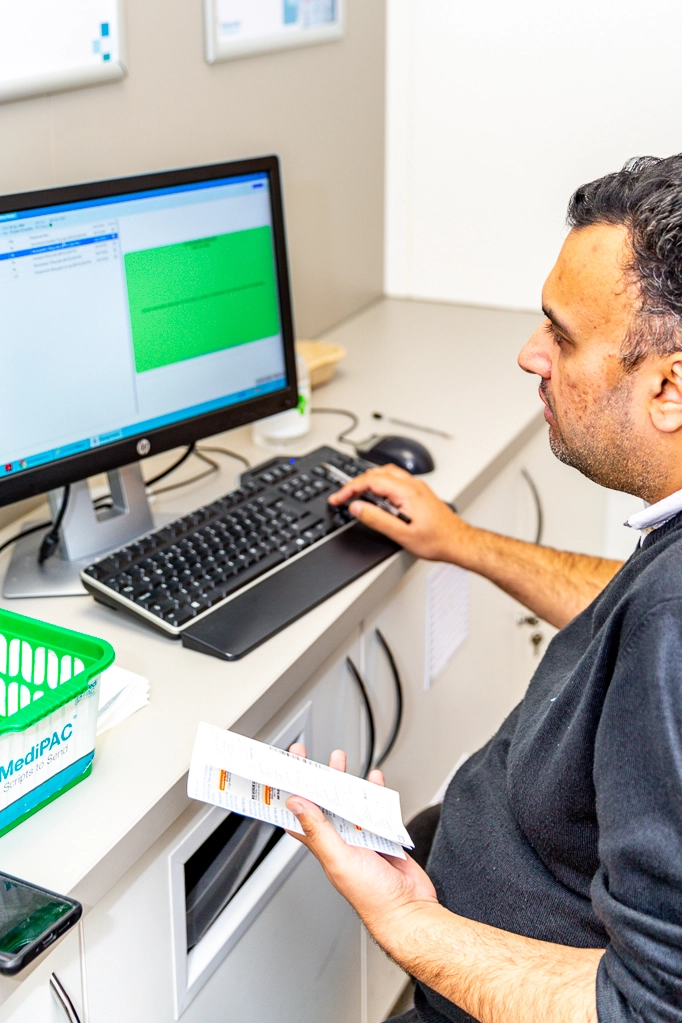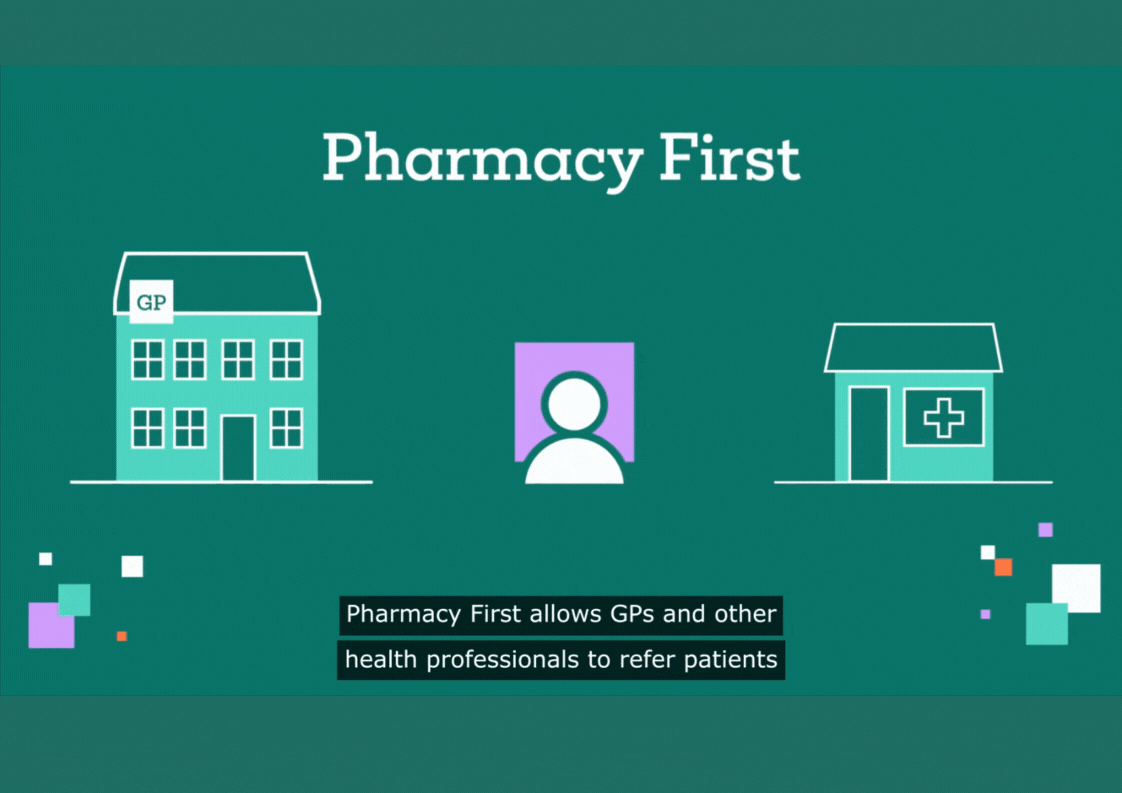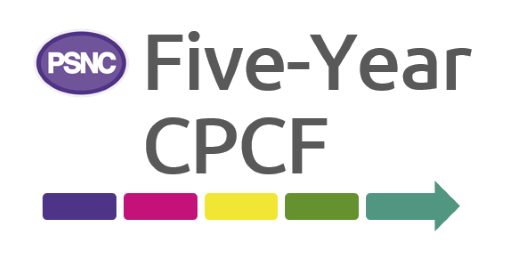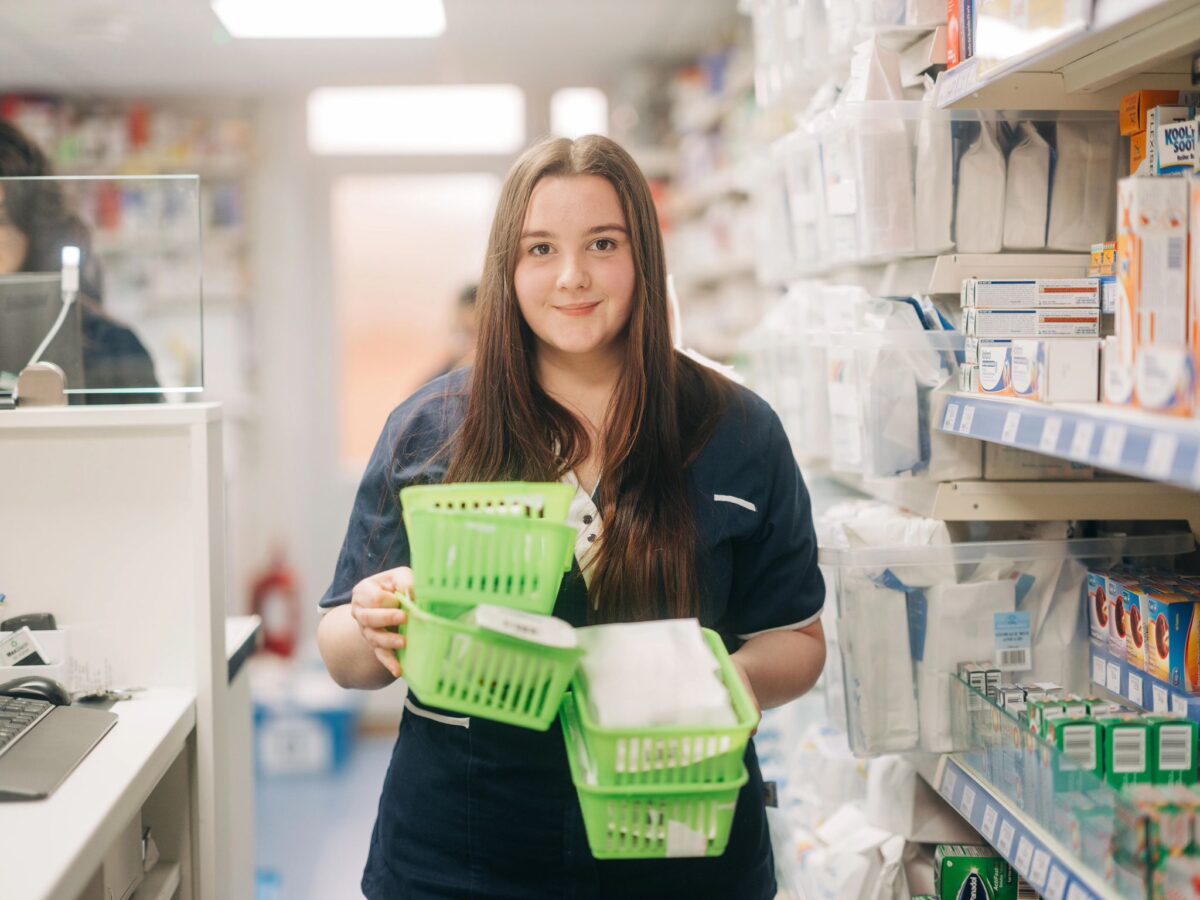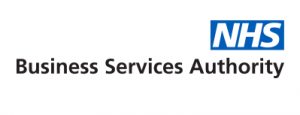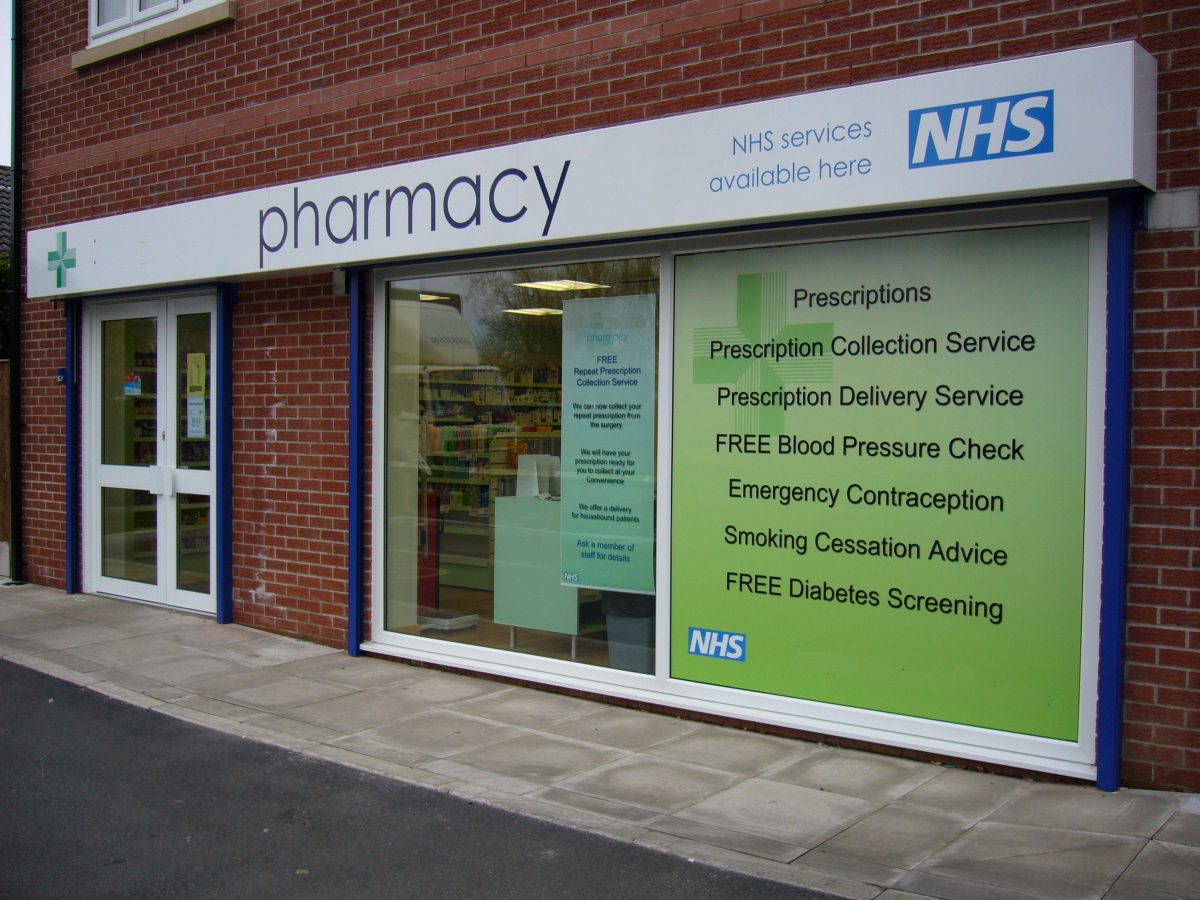New Medicine Service (NMS)
Published on: 18th June 2013 | Updated on: 18th November 2023
The New Medicine Service (NMS) was the fourth Advanced Service to be added to the Community Pharmacy Contractual Framework (CPCF); it commenced on 1st October 2011.
The service provides support for people with long-term conditions newly prescribed a medicine to help improve medicines adherence; it is focused on specific patient groups and conditions.
Forthcoming changes to the service
Developments in NMS IT support planned for December 2023
From a date to be determined, subject to positive evaluation of an ongoing pilot, the NMS will expand to include antidepressants to enable patients who are newly prescribed an antidepressant to receive extra support from their community pharmacist.
Further details on this change will be published in due course.
Click on a heading below for more information
The policy context for the service
In England, around 15 million people have a long-term condition (LTC) and the optimal use of appropriately prescribed medicines is vital to the management of most LTCs. However, reviews conducted across different disease states and different countries are consistent in estimating that between 30 and 50 per cent of prescribed medicines are not taken as recommended. This represents a failure to translate the technological benefits of new medicines into health gain for individuals. Sub-optimal medicines use can lead to inadequate management of the LTC and a cost to the patient, the NHS and society.
It is therefore clear that non-adherence to appropriately prescribed medicines is a global health problem of major relevance to the NHS. It has been suggested that increasing the effectiveness of adherence interventions may have a far greater impact on the health of the population than any improvement in specific medical treatments.
Non-adherence is often a hidden problem, undisclosed by patients and unrecognised by prescribers. People make decisions about the medicines they are prescribed and whether they are going to take them very soon after being prescribed the new medicine.
Research has shown that pharmacists can successfully intervene when a medicine is newly prescribed, with repeated follow up in the short term, to increase effective medicine taking for the treatment of a long-term condition.
Service description
The service provides support to people who are newly prescribed a medicine to manage a long-term condition, which will generally help them to appropriately improve their medication adherence and enhance self-management of the LTC. Specific conditions/medicines are covered by the service, which are detailed below.
The service is split into three stages, which are:
- patient engagement;
- intervention; and
- follow up.
Patient engagement – Following the prescribing of a new medicine for the management of a LTC, patients will be recruited to the service by prescriber referral (which could include referral for medicines prescribed to the patient as a hospital inpatient or outpatient) or opportunistically by the community pharmacy staff.
The new medicine will be dispensed as usual, with the provision of advice about its use and the patient will be offered the opportunity to use the NMS. Where there is acceptance of the offer, the pharmacy staff and patient will agree a method and time for the Intervention stage, typically between seven and 14 days after patient engagement.
Intervention – The pharmacist and patient will have a discussion either face-to-face in the pharmacy’s consultation room or alternatively via telephone or video consultation. The pharmacist will assess the patient’s adherence to the medicine(s), identify problems and determine the patient’s need for further information and support. The NMS intervention interview schedule will normally be used to guide this conversation.
The pharmacist will provide advice and further support and where no problems have been identified, will agree a time for the follow up stage, typically between 14 and 21 days after the intervention stage. This is similarly the case, where problems have been identified, but the pharmacist and patient have agreed actions which may address the issues, without the need to discuss these with the patient’s prescriber.
If problems are identified and it is the clinical judgement of the pharmacist that intervention by the patient’s prescriber is required, the issue will be referred to them to consider.
Follow up – The pharmacist and patient will again have a discussion either face-to-face in the pharmacy’s consultation room or alternatively via telephone or video consultation. The pharmacist will assess the patient’s adherence to the medicine(s), identify problems and determine the patient’s need for further information and support. The NMS follow up interview schedule will normally be used to guide this conversation. The pharmacist will provide advice and further support where necessary. If a problem is identified, the pharmacist and patients will either agree a solution or, where necessary, the patient will be referred to their prescriber to consider the matter.
All stages of the service provide an opportunity for healthy living advice to be provided, as appropriate to the individual.
Amendments to the Pharmaceutical Services (Advanced and Enhanced Services) (England) Directions 2013 (updated 1st September 2021)
The Secretary of State Directions provide the legal basis for the provision of the service.
NMS service specification (Updated 1st September 2021)
The service specification describes the requirements for provision of the service and it is essential reading for all pharmacists providing the service.
There are several requirements a contractor must comply with prior to providing the service:
1) They must be satisfactorily complying with their obligations under the Terms of Service in respect of the provision of Essential services and an acceptable system of clinical governance.
2) They must have a Standard Operating Procedure (SOP) in place for the service.
3) Pharmacists that will provide the service must have the necessary knowledge and skills to do so, with them assessing and declaring their competence by completing the NHS self-assessment form (see the next section).
4) Contractors are required to notify general practices within their locality of their intention to provide the service. This is to encourage effective partnership working between practices and pharmacies to ensure the service delivers good outcomes for patients.
5) The pharmacy must have a consultation room which complies with the following requirements:
- it must be clearly designated as an area for confidential consultations;
- it must be distinct from the general public areas of the pharmacy premises; and
- it must be a room where both the person receiving services and the pharmacist providing those services are able to sit down together and talk at normal speaking volumes without being overheard by any other person (including pharmacy staff), other than a person whose presence the patient requests or consents to (such as a carer or chaperone).
Where pharmacy premises are too small for a consultation room to be included, the contractor must apply to their NHS England regional team to request an exemption from this requirement using the published form (NHS England – Pharmacy regulations guidance forms). NHS England will consider the information provided by the contractor and where it is of the opinion that the pharmacy is too small for a consultation room, it will confirm this with the contractor and grant an exemption.
The contractor must then ensure that they put arrangements in place at the pharmacy which enable staff and patients to communicate confidentially by telephone or another live audio link and a live video link.
Where NHS England have agreed an exemption from the requirement of a consultation room and the contractors has met the additional arrangements to facilitates confidential conversations with patients, then the contractor can instead provide the service remotely or in the patient’s home.
Contractors are advised to keep a copy of the NHS England decision confirming that the contractor is exempt from the requirement of having a consultation room on the premises.
Where NHS England are of the opinion that the pharmacy is not too small for a consultation room, the contractor will be advised of this and they will need to install a consultation room if they intend to provide the service.
6) Having met the above requirements, contractors must then inform their regional NHS England team of their intention to provide the service; this notification must be made using the NMS Pharmacy Contractor Declaration Form, which should be emailed to the regional NHS England team:
NMS Pharmacy Contractor Declaration Form (Microsoft Word)
Pharmacists must check they have the necessary knowledge and skills before they are able to provide the NMS.
To assess whether they have the necessary knowledge and skills, they are required to complete and sign the NMS self-assessment form.
NMS self-assessment form (June 2020) (Microsoft Word)
NMS self-assessment form (June 2020) (PDF)
The completed form should be retained by the pharmacy contractor.
Learning Materials
The Centre for Pharmacy Postgraduate Education (CPPE) has a range of NMS learning materials which are available to pharmacists to develop their knowledge and skills which can be accessed via the CPPE NMS gateway page.
From 1st September 2021, the following conditions are covered by the service:
- Asthma and COPD:
- Diabetes (Type 2);
- Hypertension;
- Hypercholesterolaemia;
- Osteoporosis;
- Gout;
- Glaucoma;
- Epilepsy;
- Parkinson’s disease;
- Urinary incontinence/retention;
- Heart failure;
- Acute coronary syndromes;
- Atrial fibrillation;
- Long term risks of venous thromboembolism/embolism;
- Stroke / transient ischemic attack; and
- Coronary heart disease
The antiplatelet/anticoagulant therapy eligibility continues, but it is now included in the above list by reference to the underlying condition/reason for prescribing.
Download a list of the NMS conditions
The NHS Business Services Authority (NHSBSA) has published a list of medicines that are suitable for NMS.
If a patient has been newly prescribed one of these medicines, they will be eligible to receive the service, subject to the pharmacist being able to determine that the medicine is being used to treat one of the above conditions in circumstances where a medicine can be used to treat multiple conditions.
It is not generally appropriate for the service to be provided where there has been a formulation change. The rationale for this is that a change from one solid dosage form to another is unlikely to present major clinical issues for a patient and hence provision of the NMS in such circumstances would not provide value to the NHS.
However, there may be circumstances, where in the professional opinion of the pharmacist, they believe the patient would benefit from the provision of the NMS where they are moving from one formulation of a medicine to another (for example the prescribing of the same inhaled medicine, but in a different inhaler device from that previously used by the patient).
NMS consultations provided in the pharmacy will be undertaken in the consultation room. Alternatively, consultations can be undertaken by telephone or video consultation, where the patient has previously consented to this and it is clinically appropriate.
A pharmacist providing the NMS by telephone or video consultation can do so from the pharmacy premises or from another location, e.g. a pharmacist who is working from home.
In all circumstances where, with the patient’s prior consent, telephone or video consultations are used to provide parts of the NMS, the pharmacist must undertake the consultation in an environment where the conversation cannot be overheard by others (except by someone whom the patient wants to hear the conversation, for example a carer).
Contractors can also provide the NMS in patients’ homes, but they must ensure appropriate safe-guarding arrangements are in place, including ensuring pharmacists have a valid DBS certificate, and there are appropriate procedures and indemnity arrangements in place.
Patient consent
Prior to provision of the service, verbal consent must be sought from the patient and a record of that made in the pharmacy’s clinical record for the service. In seeking consent, contractors need to ensure that the patient is made aware that the consent enables:
- the provision of the service;
- the sharing of information between the pharmacy and the patient’s general practice if needed, to enable the provision of appropriate care;
- the sharing of information about the service with NHS England as part of service monitoring; and
- the sharing of information about the service with NHS England and the NHS Business Services Authority (NHSBSA) as part of post-payment verification (PPV).
The General Pharmaceutical Council’s Guidance on Consent provides information on consent for pharmacists and their teams.
Information for patients on the service
The service specification requires information on the NMS to be given to the patient; this requirement may be fulfilled by providing a leaflet to the patient.
NMS patient leaflet (Microsoft Word)
NMS patient leaflet (PDF)
If an NMS item is dispensed for a patient, but the medicine is being delivered to the patient, or a representative is collecting the prescription, the following template leaflet may be used to offer the NMS to the patient:
Template NMS patient leaflet for use when the patient is not present in the pharmacy (Microsoft Word)
Template NMS patient leaflet for use when the patient is not present in the pharmacy (PDF)
Further guidance on creating your own patient communication materials can be found on the Communicating with patients page.
The consultations with the patient – using the NMS interview schedule
The NMS interview schedule should be used by pharmacists to help shape the conversation they have with patients at the intervention and follow up stages of the service. The interview is based on the approach used in the proof of concept research and members of the original research team helped to design it.
Interview schedule without notes
Referring patients to their general practice
There may be occasions during the provision of the NMS when pharmacists will need to refer patients to their GP, where an issue has arisen that cannot be solved by the pharmacist and patient.
In these circumstances pharmacists can use the NMS GP Feedback form to communicate with the GP practice.
NMS GP Feedback Form (Microsoft Word)
NMS GP Feedback Form (PDF)
It is best practice to phone the GP practice where a referral is urgently required, following this up by sending a copy of the NMS GP Feedback Form to the GP practice.
Where the information to be fed back to the GP practice is less urgent, the form should be sent to the practice, with the patient being advised that the GP practice will contact them about the information in the NMS Feedback form where necessary.
Community Pharmacy England is sometimes contacted by contractors or LPCs because local GPs have queried the wording in the NMS Feedback form which puts the responsibility to follow up with the patient on the GP practice, rather than the patient being asked to make an appointment with their GP. The NMS Feedback Form was designed by Community Pharmacy England, the GP Committee (GPC) of the British Medical Association and NHS Employers and the wording regarding referral back to the GP practice was proposed by the practising GPs representing the GPC.
The rationale for this approach is that it allows the GP practice to deal with the issue as they see fit, which may require an appointment with the patient’s usual GP, or it may involve another practice team member, such as a practice nurse, dealing with the query. It also provides flexibility for the GP practice to manage the issue by telephoning the patient if that is deemed an appropriate alternative to an appointment in the practice. The GPC view was that this approach provided more flexibility for practices to manage queries in the best way for their patients and using the full range of skills within their team, rather than requiring all queries to be dealt with via a face to face appointment with a GP.
Record keeping requirements
Pharmacists providing the service must make records to support ongoing provision of the service to patients, their future care and audit of the service. The records must be kept for at least two years from the date on which the service is completed or discontinued.
Contractors must also provide to the NHSBSA a summary of the NMS conducted on a quarterly basis; further information on this is provided in the section below.
The minimum requirements for record keeping are detailed in the service specification. If you do not have access to a computer in the consultation room, or do not wish to use it during your discussion with the patient, the following NMS Worksheets can be used to record notes during the Intervention and Follow up stages of the service and then summarise your discussion with the patient (to support the creation of summary data for submission to the NHSBSA).
Coding to be used to record the ethnic group of people
Working with PCN clinical pharmacists
The development of Primary Care Networks (PCNs) has resulted in the employment of clinical pharmacists within PCNs, based at general practices; in many cases the clinical pharmacist may be able to assist the community pharmacist and patient with the matter identified during the NMS.
NHS guidance for PCNs on the provision of Structured Medication Reviews includes referrals being made to the patient’s community pharmacy for provision of the NMS.
The guidance outlines how PCNs should work with community pharmacies to connect patients appropriately to the NMS.
NHS England has announced that NHS approved IT systems for recording NMS consultations and sharing data with the NHSBSA are due to be ready from 1st December 2023.
This development follows negotiations with NHS England and the Department of Health and Social Care where it has previously been agreed that IT support for CPCF clinical services will be updated to allow information on services provided and payment claims to automatically flow from pharmacy IT systems to the NHSBSA.
This work has already been completed for several of the CPCS clinical services, with the development of application programming interfaces (API) between pharmacy IT systems and the NHSBSA’s Manage Your Service (MYS) portal.
The New Medicine Service (NMS) is next in line for completion of this work and NHS England has issued an email update to pharmacy owners, stating the target go-live date for updated pharmacy clinical IT systems and the API is 1st December 2023, with Cegedim, Positive Solutions and Sonar on track to meet that date.
However, unlike the previous releases of updated pharmacy clinical IT systems and APIs for CPCS clinical services, to begin with, there will be no change to the current manual end of month claim for the NMS via the electronic submission form (FP34C) within MYS.
Transition to the mandatory use of approved IT systems for NMS
Changes need to be made to NHSBSA systems before data being sent from approved pharmacy clinical IT systems via the API to MYS can be used to populate end of month claims for NMS provisions.
Plans are in place for these changes to be made, with completion of these expected at some point in 2024. Once that work at the NHSBSA is completed, pharmacy owners providing the NMS will need to use an approved clinical IT system to keep their clinical records for the service and to submit data on the provision of the service and payment claims to MYS. At that time, the current manual MYS claim process for the service will be retired.
Notice of this change will be communicated to pharmacy owners in advance, once a target go-live date has been set.
However, until that time, pharmacy owners can choose to use one of the approved pharmacy clinical IT systems (once available) to maintain their clinical records and voluntarily provide data on the provision of NMS via the MYS API.
Alternatively, they can continue to use other NMS records systems, for example in their PMR system.
Find out more about which IT systems are developing updated modules for NMS
Once it becomes mandatory to use an approved IT system with an API, some pharmacy owners may have to change the system in which they keep their NMS records.
We suggest pharmacy owners check with their current NMS IT system provider to see whether they are planning to meet the new IT standards and implement the API.
The current quarterly NMS data submission system
The mandatory requirement to submit quarterly summary data on the NMS to the NHSBSA has been suspended since 2020 due to the COVID-19 pandemic.
Earlier this year we agreed with NHS England to restart submissions of this quarterly data on a voluntary basis.
Once approved IT systems are available for NMS, voluntary submissions of quarterly summary data will be stopped.
The final quarter for which pharmacy owners can choose to submit their NMS quarterly summary data will be Quarter 2 of 2023/24 (1st July – 30th September 2023). Any voluntary submissions should be made by 30th November 2023.
Summary of these changes
| Timescale | Summary |
| By 30th November 2023 |
|
| From 1st December 2023 |
|
| Timescale to be determined (expected sometime in 2024) |
|
Further information on clinical services IT systems and APIs: CPCF clinical services IT requirements
Contractors claim payments by stating on their monthly FP34C the number of completed NMS they have undertaken in a given month.
When is an NMS provision complete?
Community pharmacy contractors earn between £20 and £28 for each completed NMS they provide depending on the total number of patients who receive the service in the month. The structure rewards each complete NMS provided whilst also encouraging the provision of the service to the greatest number of patients.
Payments are based on the number of prescription items dispensed, i.e. the actual count of physical items processed by the Pricing Authority. Certain items where multiple fees are paid, e.g. FP10MDA items, ACBS flavoured food items and combination packs, only count as one item when assessing the NMS volume. Contractors claim payments by stating on their monthly FP34C the number of completed NMS they have undertaken in a given month.
When is the NMS complete (and payment can be claimed)?
There are a number of target payment levels. Under the payment structure the price per completed NMS increases at certain target levels; this means that contractors will be rewarded for providing the NMS to as many patients as possible. Where a target level is reached, all of the full-service interventions provided up to that point are paid at the rate corresponding to the target.
- All completed NMS provided by a contractor that fall below the 10% target will paid at £20 each;
- Once a contractor reaches the 10% target all completed NMS (including those which fall below the 10% target) will be paid at £25 each;
- Once a contractor reaches the 20% target all completed NMS (including those which fall below the 20% target) will be paid at £26 each;
- Once a contractor reaches the 30% target all completed NMS (including those which fall below the 30% target) will be paid at £27 each;
- Once a contractor reaches the 40% target all completed NMS (including those up to the maximum target) will be paid at £28 each.
The number of completed NMS that each contractor needs to provide in order to reach each of the target levels, and the maximum number of interventions for which payment will be received, is outlined in the table below.
| Volume of prescription items per month | Number of full service interventions per month necessary to achieve each target | Maximum number of full service interventions per month for which payment will be received | ||||||||
| 10% target £25 per full service intervention | 20% target £26 per full service intervention | 30% target £27 per full service intervention | 40% target £28 per full service intervention | 50% target £28 per full service intervention | 60% target £28 per full service intervention | 70% target £28 per full service intervention | 80% target £28 per full service intervention | 90% target £28 per full service intervention | ||
| 0-1500 | 1 | 2 | 3 | 4 | 5 | 6 | 7 | 8 | 9 | 10 |
| 1501-2500 | 2-3 | 4-5 | 6-7 | 8-9 | 10-11 | 12-13 | 14-15 | 16-17 | 18-19 | 20 |
| 2501-3500 | 3-5 | 6-8 | 9-11 | 12-14 | 15-17 | 18-20 | 21-23 | 24-26 | 27-29 | 30 |
| 3501-4500 | 4-7 | 8-11 | 12-15 | 16-19 | 20-23 | 24-27 | 28-31 | 32-35 | 36-39 | 40 |
| 4501-5500 | 5-9 | 10-14 | 15-19 | 20-24 | 25-29 | 30-34 | 35-39 | 40-44 | 45-49 | 50 |
| 5501-6500 | 6-11 | 12-17 | 18-23 | 24-29 | 30-35 | 36-41 | 42-47 | 48-53 | 54-59 | 60 |
| 6501-7500 | 7-13 | 14-20 | 21-27 | 28-34 | 35-41 | 42-48 | 49-55 | 56-62 | 63-69 | 70 |
| 7501-8500 | 8-15 | 16-23 | 24-31 | 32-39 | 40-47 | 48-55 | 56-63 | 64-71 | 72-79 | 80 |
| 8501-9500 | 9-17 | 18-26 | 27-35 | 36-44 | 45-53 | 54-62 | 63-71 | 72-80 | 81-89 | 90 |
| 9501-10500 | 10-19 | 20-29 | 30-39 | 40-49 | 50-59 | 60-69 | 70-79 | 80-89 | 90-99 | 100 |
| +1000 | (+1)-(+2) | (+2)-(+3) | (+3)-(+4) | (+4)-(+5) | (+5)-(+6) | (+6)-(+7) | (+7)-(+8) | (+8)-(+9) | (+9)-(+10) | (+10) |
Payment is limited to 1% of the contractors’ eligible monthly prescription volume; contractors can provide NMS above this limit but will not be paid for them.
For example, where a pharmacy with a monthly prescription volume between 3501 to 4500 provides 10 service interventions in the month (achieving the 20 per cent target rate) all 10 interventions will be reimbursed at the 20 per cent rate of £26 each.
The claim for activity for each month must be made by submitting the appropriate form to the NHS Business Services Authority no later than 5th of the following month.
Community Pharmacy England clinical service statistics dashboard
The dashboard presents data on the NMS (as well as other Advanced services) at three levels (national, LPC and individual pharmacy) for each quarter. The dashboards are based on the NHS Business Services Authority’s (NHSBSA) Dispensing Contractors’ data.
NHSBSA Dispensing Contractors’ data
Data on the NMS (as well as other Advanced services) can be found by clicking on the ‘Pharmacy and appliance contractor dispensing data’ dropdown tab.
The opportunity to provide catch-up NMS has now finished.
The temporary introduction of catch-up NMS allowed contractors to offer patients who were prescribed a new, eligible medicine (including from the expanded conditions) during the COVID-19 pandemic, but who did not receive the NMS at that time, additional support.
Contractors were able to offer the catch-up service to eligible patients between 1st September 2021 and 31st March 2022.
Eligible patients must have:
- Had a medication which falls into the eligible therapeutic categories newly prescribed between 1st April 2020 and 31st August 2021; and
- Not previously received an NMS in respect of that prescribed medicine when it was originally prescribed.
Providing a catch-up service
Provision of a catch-up NMS was able to follow the standard NMS path as described above, however, it was recognised that patients were likely to have started using the new medicine(s) and may have been established on the regimen for several months, so the timings of the different stages could be varied from the standard approach.
It was expected that in most cases the contactor would have dispensed the first prescription for the eligible medicine(s) at the point it was initially prescribed. However, it was recognised that the patient may have changed their community pharmacy since the medication was initially dispensed. Therefore, to provide a catch-up NMS the contractor did not have to have dispensed the first prescription, but the contractor should have confirmed with the patient that they have not previously received an NMS in respect of that medication.
The patient engagement and intervention stages of the NMS could occur simultaneously at the point the patient was identified or contacted by the pharmacy (for example, the pharmacy could have identified suitable patients by a proactive review of their dispensing records or by making a check of the individual patient record when the medication was next dispensed by the pharmacy).
Additionally, if during the intervention stage it was identified that the patient had no issues with the prescribed medication requiring further follow-up, the pharmacist could document this in the clinical record and determine the NMS to be completed (and claimed for as such), without undertaking the follow up stage.
Funding and claiming for the catch-up service
From 1st September 2021 to 31st March 2022 standard and catch-up NMS would count towards the target in line with the service specification and the service Determination.
The last claim date for activity for catch-up NMS must have been made no later than 5th of April 2022.

